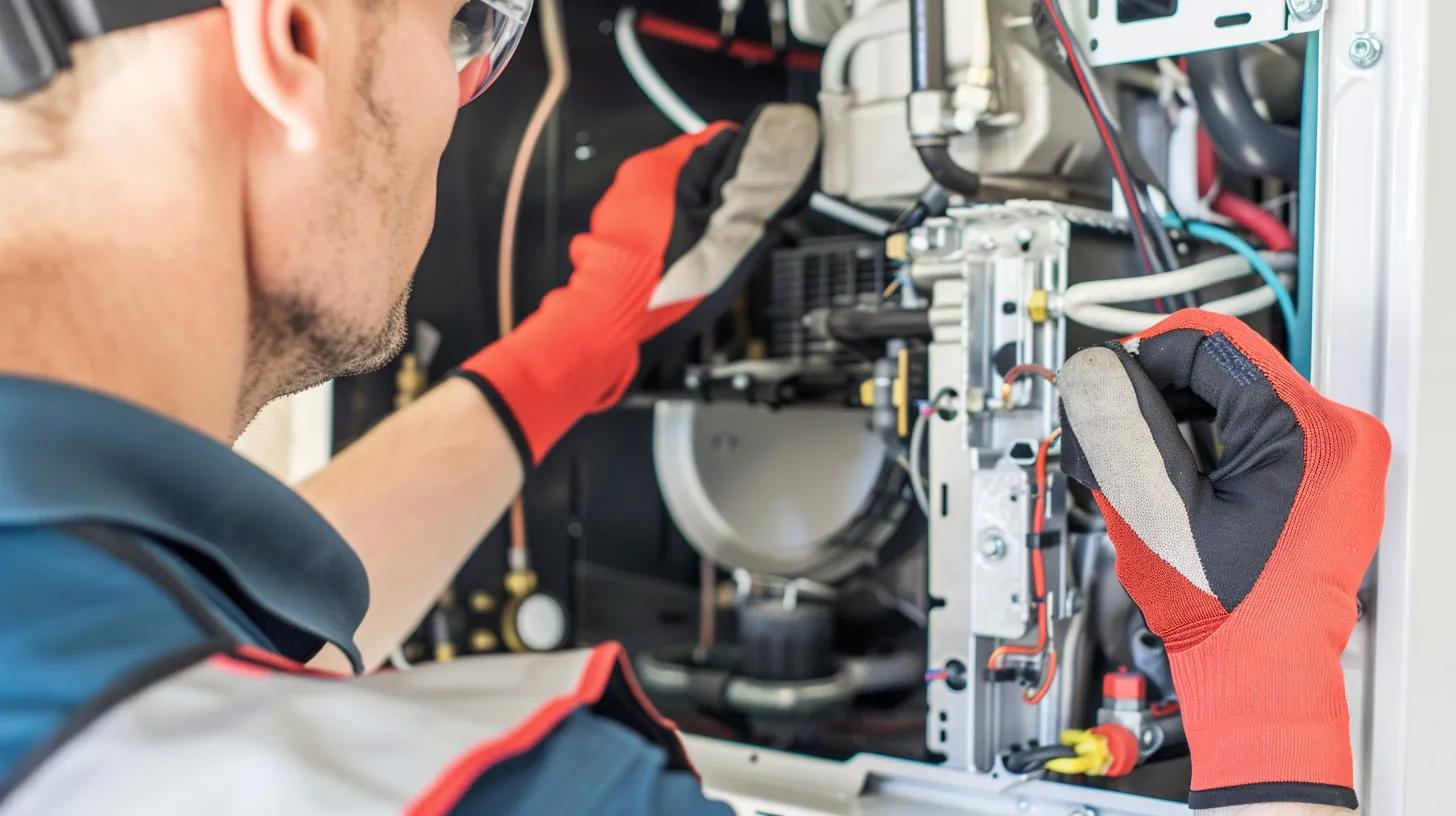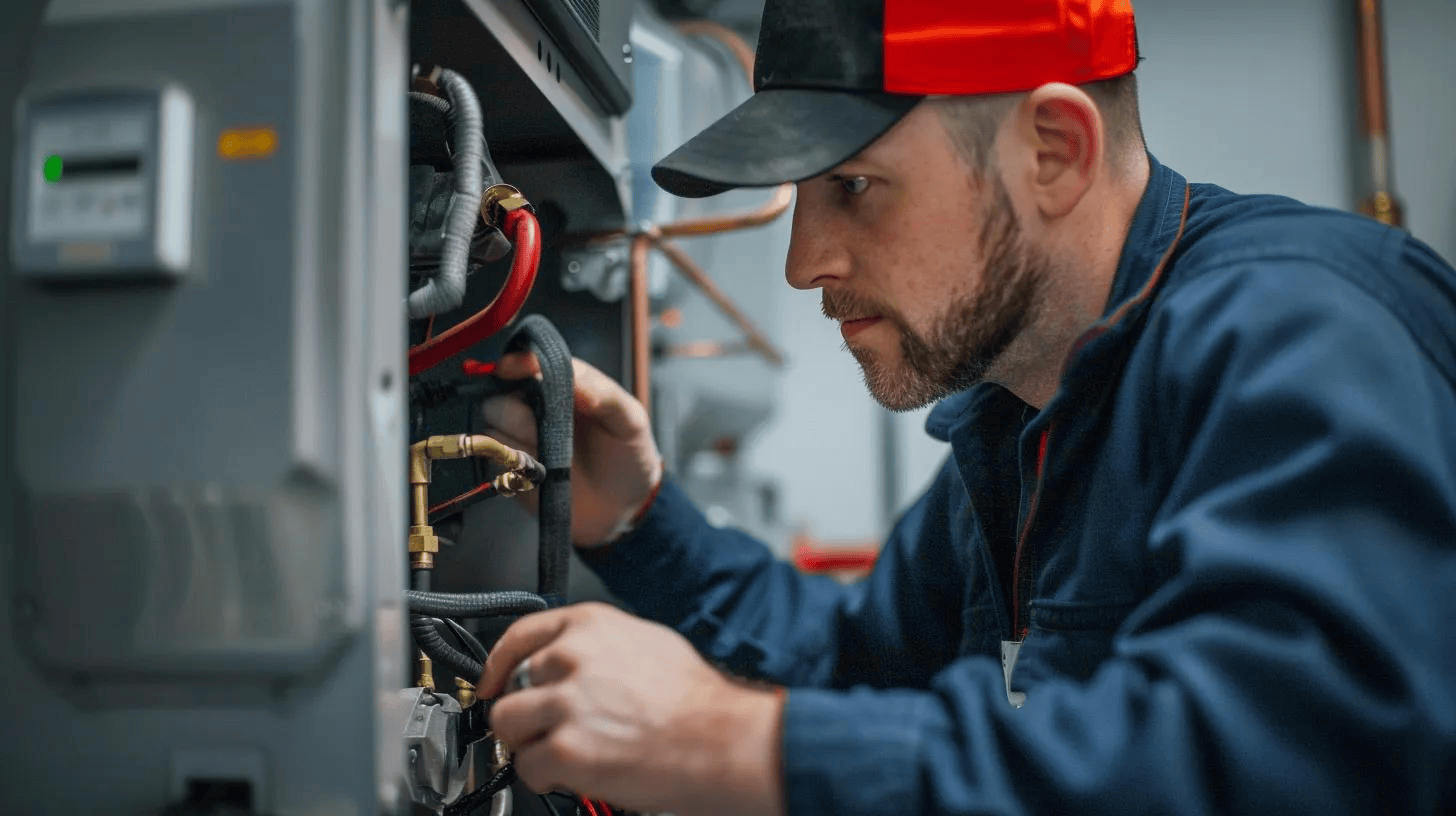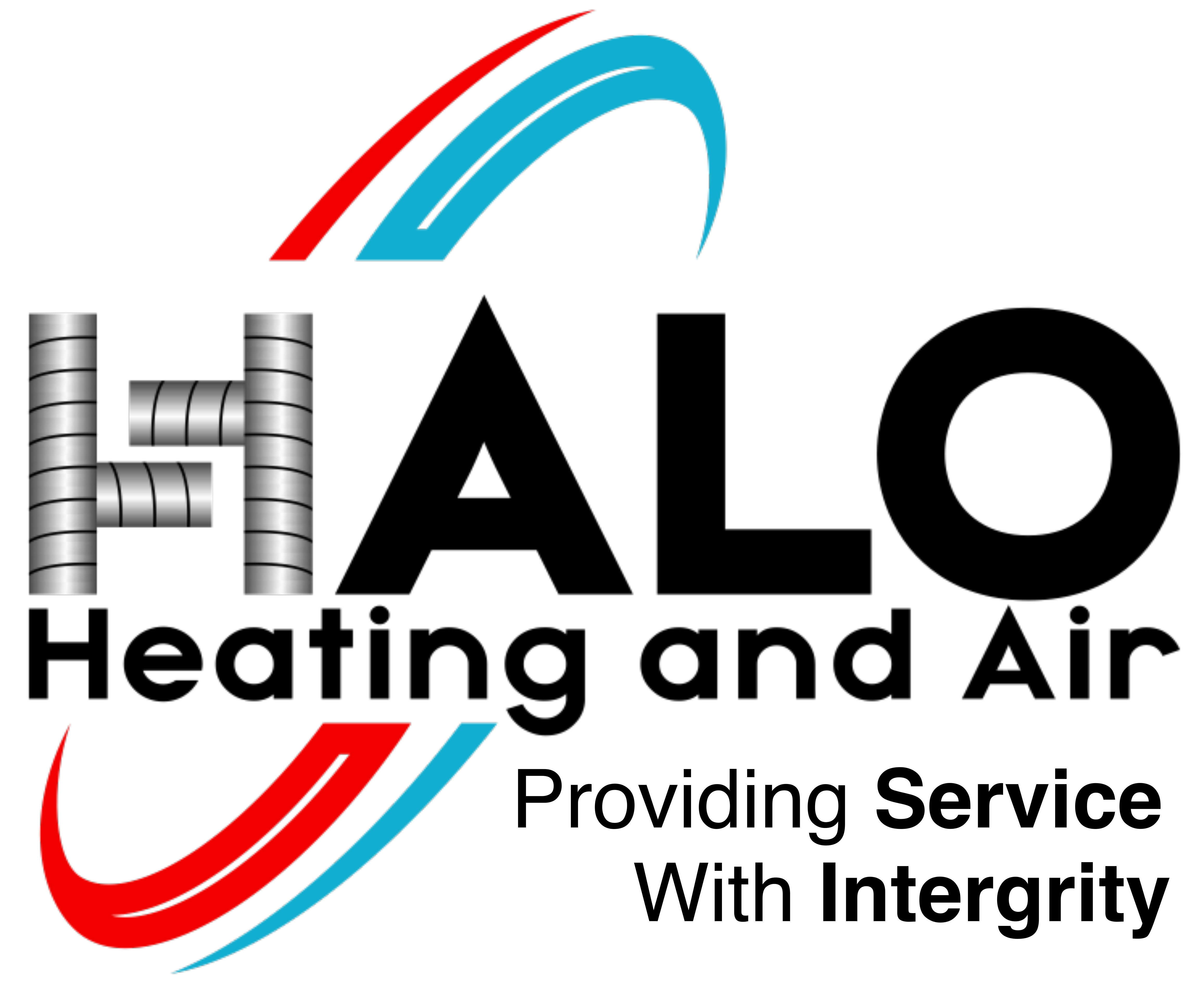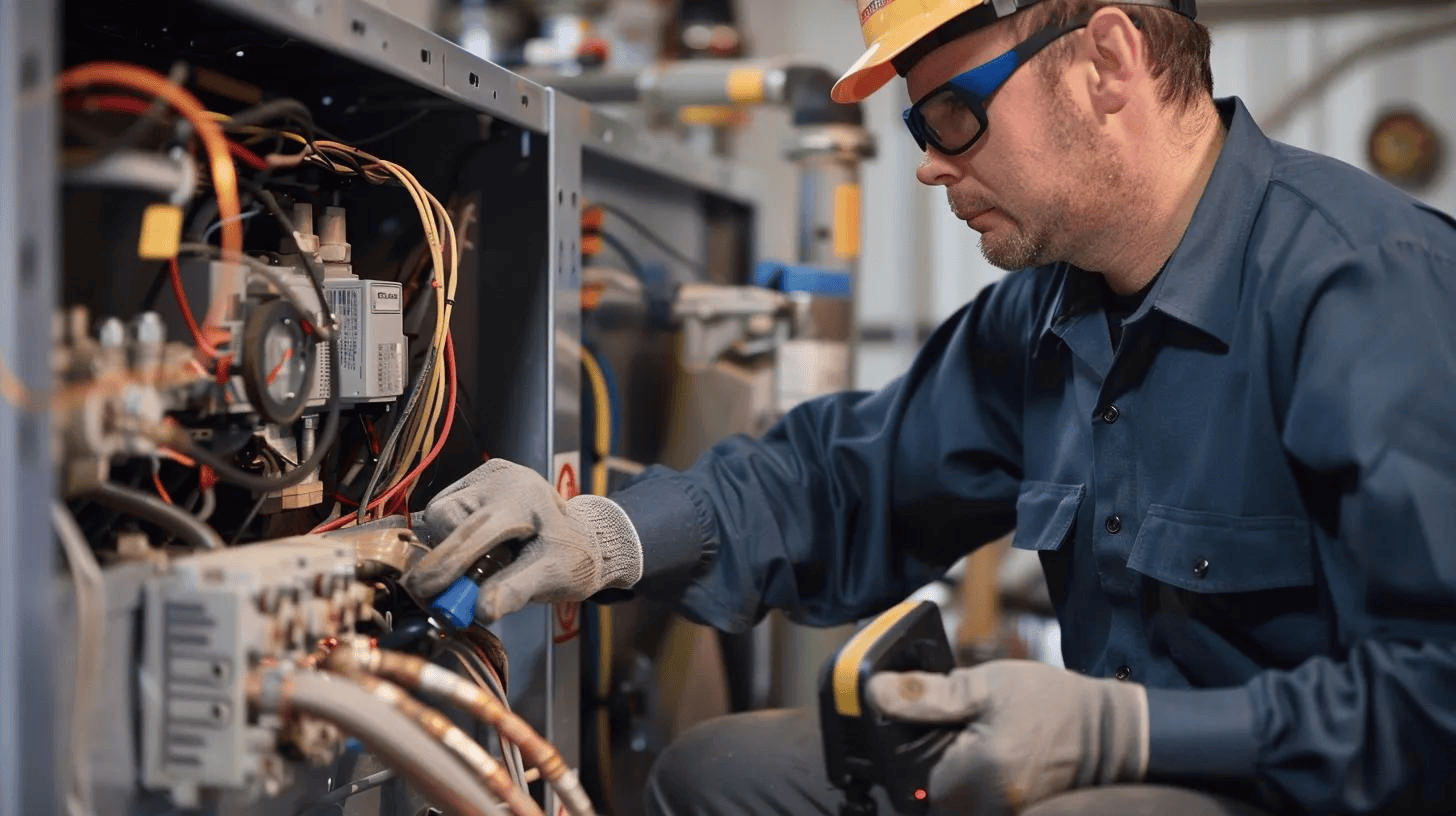Unlock HVAC Efficiency & Savings: The Simple Power of Regular Filter Changes
As a homeowner, you invest significantly in your heating and air conditioning system to keep your Northern Colorado home comfortable year-round. While your HVAC unit is complex, one of the most impactful maintenance tasks you can perform is also one of the simplest: regularly changing your air filter. At HALO Heating and Air, we believe in empowering homeowners with knowledge, and understanding the humble air filter is key to maximizing your system's performance, efficiency, and lifespan.
The HVAC Filter: Your System's First Line of Defense
Think of your HVAC filter as a gatekeeper positioned before your furnace or air conditioner's indoor unit. Its primary job is to capture airborne particles like dust, dirt, pet dander, mold spores, and lint before they can enter and potentially damage the system's internal components, such as the blower motor and evaporator coil. This protective function is crucial for maintaining the health and longevity of your expensive equipment.
However, the filter's role extends beyond just protection; it's also vital for proper airflow. Your HVAC system relies on a specific amount of air moving through it to operate efficiently and heat or cool your home effectively.
The Clogged Filter Crisis: Restricted Airflow
Over time, the filter collects more and more particles. As this debris builds up, it starts to block the free passage of air. This restriction forces your system to work much harder to pull the necessary air through the clogged filter.
Imagine trying to breathe through a thick, dusty cloth – that's essentially what your HVAC system is doing when its filter is dirty. This increased effort leads to a cascade of negative effects on performance.
The Energy Efficiency Payoff: Saving Money with Clean Filters
When airflow is restricted, your system has to run longer cycles and consume more energy to reach and maintain the desired temperature. This is where regular filter changes translate directly into tangible savings on your utility bills.
According to energy experts and HVAC professionals, simply replacing a dirty filter with a clean one can lower your HVAC system's energy consumption by 5% to 15% (U.S. Department of Energy via ENERGY STAR, Mission Critical Comfort Solutions, Carrier). That might sound small, but it adds up significantly over months and years, especially during peak heating and cooling seasons. It's one of the easiest and most cost-effective ways to maintain energy efficiency.
Beyond Efficiency: Protecting Your Investment (Lifespan & Repairs)
Beyond saving on energy costs, regular filter replacement is critical preventative maintenance for your HVAC system. The strain caused by restricted airflow puts excessive stress on key components like the blower motor. This can lead to premature wear and tear, breakdowns, and potentially costly repairs.
A dirty filter can cause the evaporator coil (part of your AC) to freeze up or the heat exchanger (part of your furnace) to overheat. These issues can be expensive to fix and, worse, drastically shorten the overall lifespan of your system. Some estimates suggest that neglecting filter changes can potentially decrease system lifespan by up to 10 years (Filti). Considering the significant cost of replacing an entire HVAC unit, spending a few dollars on filters regularly is a smart investment that protects your larger asset (Redding Heating & Air, Lee Company).
Common repairs linked to neglected filters include:
- Blower motor failure (can cost hundreds to over a thousand dollars to replace).
- Frozen evaporator coils (requiring professional defrosting and potentially further diagnostics).
- Overheating furnace components.
Preventing these issues is far less expensive and stressful than dealing with them after they occur (Broadleys).
Breathing Easier: Indoor Air Quality and Your Health
Clean air isn't just good for your HVAC system; it's good for your family's health too. Your HVAC filter plays a vital role in trapping airborne particles that can irritate allergies, worsen asthma, and contribute to respiratory issues.
A clean, properly functioning filter effectively captures pollen, dust mites, pet dander, and other allergens, helping to circulate cleaner air throughout your home. Conversely, a clogged filter can become a breeding ground for mold and bacteria, recirculating these contaminants back into your living space, potentially making your indoor air quality worse than the air outside
Choosing Your Defender: HVAC Filter Types and MERV Ratings
Not all filters are created equal. Understanding the different types and the MERV rating system will help you choose the best filter for your needs and system.
- Fiberglass Filters: The most basic and least expensive. They capture larger dust particles and lint but offer minimal protection against smaller allergens. They have a low MERV rating (typically 1-4). Need frequent changes (often monthly).
- Pleated Filters: Made from polyester or cotton folds, offering a larger surface area to capture more particles than fiberglass filters. They are more effective against dust mites, pet dander, pollen, and mold spores. MERV ratings typically range from 8-13.
- Washable Filters: Reusable filters that you clean instead of replacing. While convenient, they often have lower MERV ratings and must be completely dry before reinstallation to prevent mold growth. Their effectiveness can decrease over time.
- Electronic Filters: Use an electric charge to trap particles. These are highly effective but are a larger upfront investment and require regular cleaning.
Understanding MERV Ratings:
MERV stands for Minimum Efficiency Reporting Value (EPA.gov). This rating, on a scale of 1 to 20, indicates how effectively a filter captures particles of different sizes.
- MERV 1-4: Capture large particles like dust mites, pollen, textile fibers. (e.g., Fiberglass)
- MERV 5-8: Capture mold spores, dust, pet dander. (e.g., Many pleated filters)
- MERV 9-12: Capture auto emissions, lead dust, humidifier dust, smaller mold spores. (e.g., Better pleated filters)
- MERV 13-16: Capture bacteria, droplet nuclei (from sneezing/coughing), smoke, pet dander allergens. (e.g., High-efficiency residential filters)
- MERV 17-20: Capture viruses, carbon dust, and microscopic allergens. (Typically used in hospitals and clean rooms).
For most Northern Colorado homeowners, a MERV 8 to MERV 11 filter offers a good balance between effective filtration (improving indoor air quality) and allowing sufficient airflow for your system to operate efficiently without undue strain (Filterbuy, Filter King). While a higher MERV (like 13) provides better air quality, it can restrict airflow more significantly. It's crucial to check your HVAC system or owner's manual to ensure it can handle a higher MERV filter without damaging the blower motor. Using a filter with too high a MERV rating for your system can actually decrease efficiency and cause system failure.
How Often Should You Change Your Filter? (It Depends!)
The most common recommendation is to change your HVAC filter every 1 to 3 months. However, this is a general guideline. Several factors in your household and environment will dictate if you need to change it more or less frequently (ARS.com, Carrier.com, GoPaschal):
- Filter Type and MERV: Fiberglass filters often need monthly changes. Pleated filters (MERV 8-11) typically last 2-3 months. Higher MERV filters (MERV 13+) might clog faster depending on air quality.
- Household Size: More people generally mean more dust and particles.
- Pets: Homes with dogs or cats (especially multiple pets) will accumulate dander and hair much faster, often requiring changes every 1-2 months or even as frequently as 20-30 days with multiple shedding pets or severe pet allergies.
- Allergies/Respiratory Issues: If someone in your home suffers from allergies or asthma, changing the filter more frequently (monthly) with a suitable MERV rating (8-11, perhaps 13 if compatible) can significantly improve comfort.
- Smokers: Smoking indoors rapidly clogs filters with tar and other particles, necessitating more frequent changes.
- Local Environment: If you live in a dusty area, near construction, or in an area with high pollen counts, your filter will get dirty faster.
- System Usage: Filters will clog faster when your HVAC system is running constantly during peak heating or cooling seasons compared to milder weather.
The best approach is to check your filter visually once a month. If it looks grey and coated with a visible layer of dust and dirt, it's time for a replacement, regardless of how long it's been.
DIY Filter Change Guide
Changing your filter is a simple task most homeowners can do:
- Locate your filter: Filters are commonly found in the return air vents (often in ceilings or walls), near the furnace/air handler unit, or in the air handler cabinet itself.
- Note the size: The size (e.g., 16x25x1) is usually printed on the side of the filter frame. Buy a replacement filter of the exact same size.
- Note the airflow direction: There is an arrow printed on the side of the filter frame indicating the direction of airflow. This is crucial! The arrow should point towards the furnace or air handler, away from the return duct.
- Remove the old filter: Open the filter grille or cabinet door. Carefully slide out the old, dirty filter. Be mindful of dust falling off.
- Insert the new filter: Slide the new filter in, making sure the airflow arrow points in the correct direction.
- Close the grille/door: Secure the grille or cabinet door.
- Dispose of the old filter: Wrap the dirty filter in a bag and discard it.
- Set a reminder: Mark your calendar or set a phone reminder to check your filter again in a month or two, based on your household factors.
Signs It's Time to Change Your Filter NOW
Don't wait for the recommended time frame if you notice any of these signs:
- Visible dirt and dust coating the filter.
- Reduced airflow coming from vents.
- Increased dust accumulating on surfaces in your home.
- Unusual odors coming from your vents.
- Your HVAC system seems to be running constantly or cycling on and off more frequently (short cycling).
- Your energy bills are unexpectedly higher.
Conclusion
Regularly changing your HVAC filter is a small task that yields big rewards. It's a fundamental part of maintaining energy efficiency, protecting your system from costly damage, extending its lifespan, and ensuring healthier indoor air for your family. By understanding your filter type, MERV rating, and considering your home's specific conditions, you can establish a filter change schedule that keeps your system running smoothly and efficiently. Make it a routine – your comfort, wallet, and HVAC system will thank you.
Need help locating your filter, choosing the right type, or are concerned about airflow issues? HALO Heating and Air is here to help with professional maintenance and advice for your Northern Colorado home.
Customer Testimonials
See what homeowners across Windsor and Northern Colorado are saying about our reliable service, expert workmanship, and commitment to getting the job done right.
Latest Blogs





.svg)






